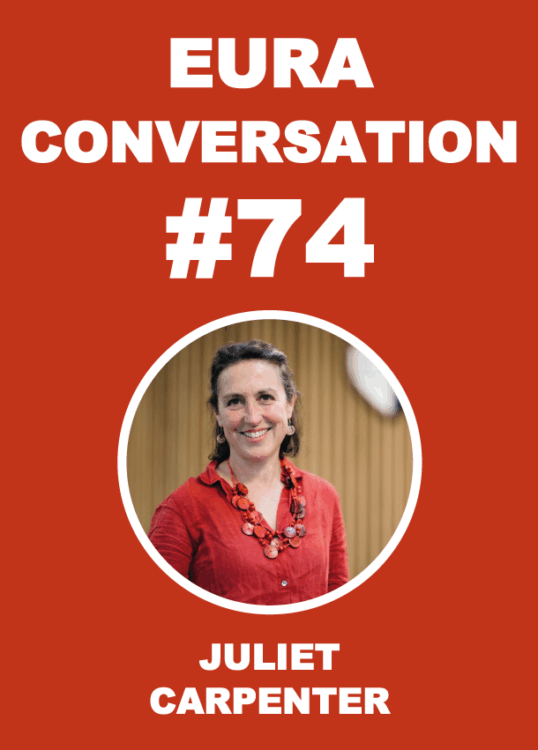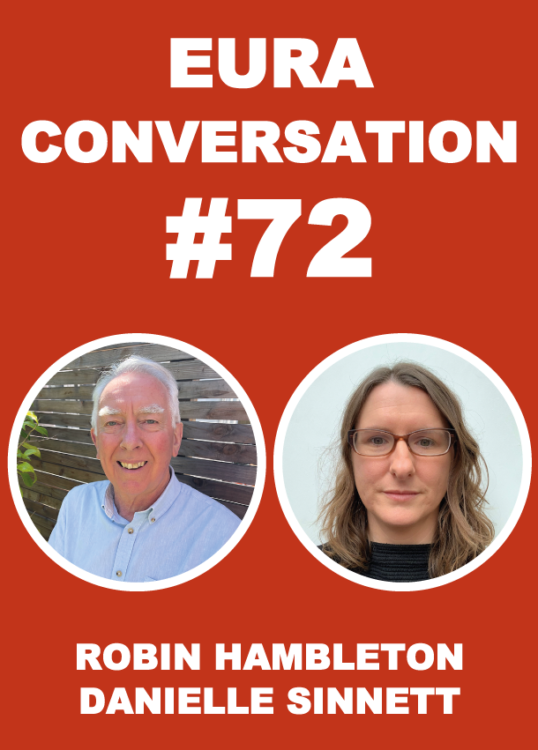
#21 Mental health
22/03/2021
Confronting COVID, Racial Injustice, and Economic Inequality
22/04/2021Urban greenspace during lockdown
EURA Conversations Post #22 – 12 April 2021
Danielle Sinnett, Centre for Sustainable Planning and Environments, University of the West of England, Bristol
Greenspaces in urban areas are critical for a host of environmental, economic and social reasons. As we saw in the last EURA Conversation, they benefit our mental health, providing space for exercise, rest and relaxation. In the lockdowns that swept the globe in response to the Covid-19 pandemic, neighbourhood green spaces were often the only place it was permissible to visit.
During this time, many people, used to visiting other leisure attractions or greenspaces further afield, began using their neighbourhood greenspaces more frequently. They became particularly important for those living in high density neighbourhoods and those with less access to private gardens. For many, greenspaces have been crucial to quality of life under lockdown, providing opportunities to meet friends outdoors, get some exercise, and allow children to play.
However, green spaces have also become sites of conflict and scrutiny. Media reports of people breaking restrictions often focussed on park use, frustrations with runners and cyclists on narrow paths and uncertainty over the risk of outdoor mixing have become common over the past twelve months. However, to a certain extent some of these conflicts have always been there, debates on how we design and manage greenspaces and for whom are not new, but Covid-19 has brought them to the fore.
Over the last few decades maintenance budgets for greenspaces have come under increasing pressure. Those championing these spaces have been required to provide more and more evidence of the benefits they provide and monetise these to demonstrate their return on investment. In many places failure to provide this evidence has resulted in a permanent loss of green spaces, or a decline in quality.
It has also become more challenging to make the case for investment in new greenspaces. Does the renewed importance of these spaces during Covid-19 mean that they will be valued more for the critical role they play? Will they be better protected in the future, and their delivery in new housing seen as an essential form of social infrastructure? In many cities, access to greenspace has been highlighted alongside the importance of walkable neighbourhoods, with 20-minute neighbourhoods and 15-minute cities capturing people’s imagination. We must ensure that local greenspace is recognised as a vital ingredient in these initiatives, providing spaces within walking distance of people’s homes, with high quality walking routes to them and within them to allow for social distancing.
We have come to appreciate the benefits of green environments and as we ease out of lockdown, we need to make cities greener and more restorative, rather than relying on escaping to the countryside. We need to protect our parks from development, and invest in these spaces, focusing on the quality of the environment as well as amount of greenspace. We also need to listen to residents of all ages and backgrounds to make sure that there is something for everyone, and to avoid conflict between different groups of users.
When we go back to ‘normal’ I hope that people and policy makers remember how critical our greenspaces have been over this time.
In the next EURA Conversation Maria Antonia Pires de Almeida discusses the role of municipalities in delivering education during the Covid-19 pandemic







